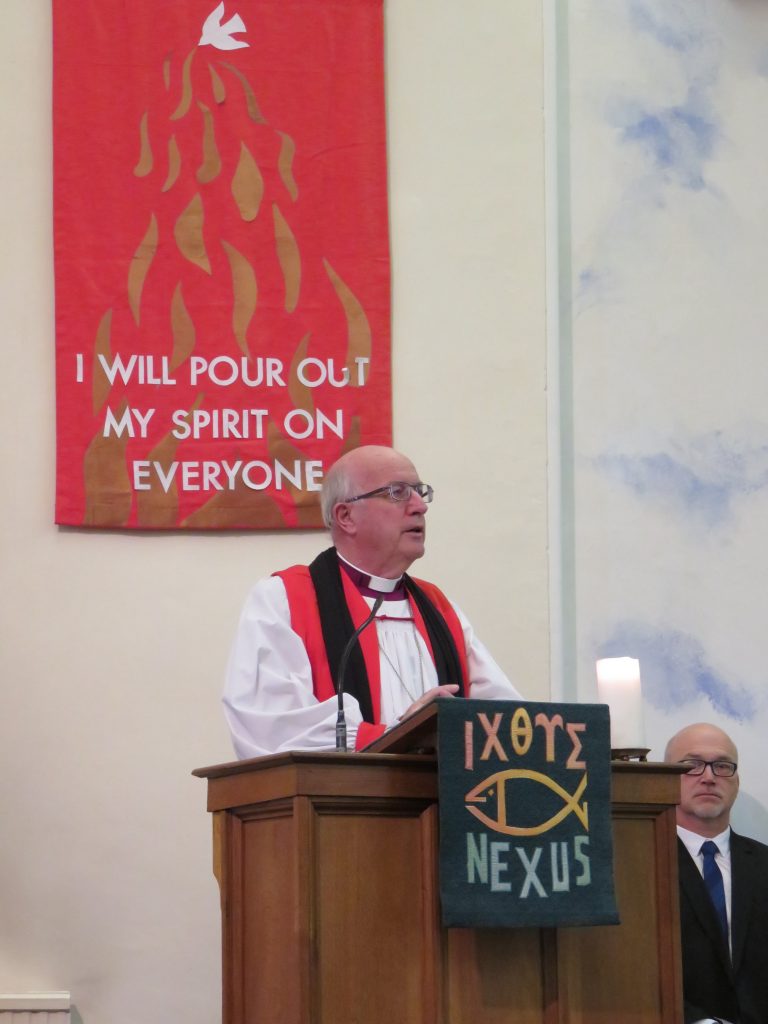Advent Hope
Jeremiah 33:14-16
Psalm 25:1-10
1 Thessalonians 3:9-13
Luke 21:25-36
What a mess our world is in. Brexit, whatever your opinion on the topic, seems to be pleasing no-one just now, and our nation is just as divided as it was on 23 June 2016, if not more so. Turmoil in the Middle East is a bad awful as ever. Russia and the United States governments seem to be looser canons than ever before. It’s a confusing world today.
In our gospel reading we heard about strange and difficult things, and rather like our world today where so much of life is dislocated due to conflict, climate change, political volatility, and disease. However, the point of the complicated and difficult gospel reading is that even the biggest and apparently most intractable problems are not without hope. In that reading, Jesus is picturing a world which will become increasingly strange, difficult, and dysfunctional. It’s surely times like these that we need hope more than anything.
Likewise, Jeremiah is expressing hope in a seemingly hopeless situation. He has been imprisoned for boldly declaring that besieged Jerusalem will be captured by enemies. If he’s right, his home and his community will be destroyed. If he’s wrong, he has wasted his life on a delusion. Yet Jeremiah’s message is of a God who offers hope, a God who will restore the fallen city and bring its people back. The climax of Jeremiah’s message of hope is looking forward to the fulfilment of God’s promise that a descendant of David will be king, a king of righteousness and justice. From the prison cell of a besieged city, Jeremiah’s confidence in God is surely inspiring, and reminds us never to accept any situation as beyond hope of change.
Jeremiah and Jesus are both offering a message of hope to a confused world, but it’s not just our world which is confused. Many churches are confused, too. A couple of generations ago everyone came to church, there wasn’t much else to do on a Sunday and children came to church without having to choose between church and a multitude of other activities. Paul, in his letter to the Thessalonians, was addressing a confused church, praying for hope for the church in Thessalonica, hope to trust in Christ, but also to have an outward focus on the needs of others. We may be feeling buoyant since formed the Spire Church, with more of us together, but we still need to address the challenges of growth and outward focus. Paul offered the Thessalonians hope in Christ. Are we going to look hope and encouragement in our church this Advent?
It isn’t just about the world, and certainly not just about the church, but it’s about you and me. I know many people have concerns about health, about loved ones, about money, about jobs, about houses, indeed surviving life itself can be a concern for some folk. We all know that Christmas is as a much a source of sadness, stress, and dread and for plenty of people as much as it is anything else. These are the people that the psalmist was addressing, grasping for ways of holding on to hope. First of all, the Psalmist seeks comfort in the idea that those who trust in God will be okay, but we know life isn’t like that, and so does the psalmist because he goes on to recognise personal failings and the need to address them, and realising that he has much to learn and much to regret. Finally the psalmist realises that the cause of confidence is not his own determination to trust in God, but God’s unfailing goodness to him. It’s not about us, it’s about God.
At the beginning of Advent it’s the time to recognise our own need of help and our own need of change, and to see that such forgiveness and change is possible not by our efforts but by God’s goodness. Hope comes to our world, our church, to each one of us, not from our own strength or even from our faith, but from God’s unfailing love and nothing else.

